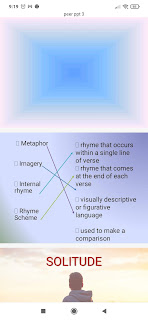Why we need poet John Keats’s concept of suspending judgment in today’s polarised world
When John Keats died 200 years ago, on February 23, 1821, he was just 25-year-old. Despite his short life, he is still considered one of the finest poets in the English language. Yet in addition to masterpieces such as Ode to a Nightingale and To Autumn, Keats’ legacy includes a remarkable concept: what he called “negative capability.” The idea – which centres on suspending judgment about something in order to learn more about it – remains as vital today as when he first wrote about it. Keats lost most of his family members to an infectious disease, tuberculosis, that would take his own life. In the same way, the Covid-19 pandemic turned the worlds of many people upside down, the poet had developed a deep sense of life’s uncertainties. Keats was born in London in 1795 . His father died in a horse-riding accident when Keats was eight-year-old, and his mother died of tuberculosis when he was 14-year-old. As a teenager, he commenced medical studies, first as an apprentice to a local ...




